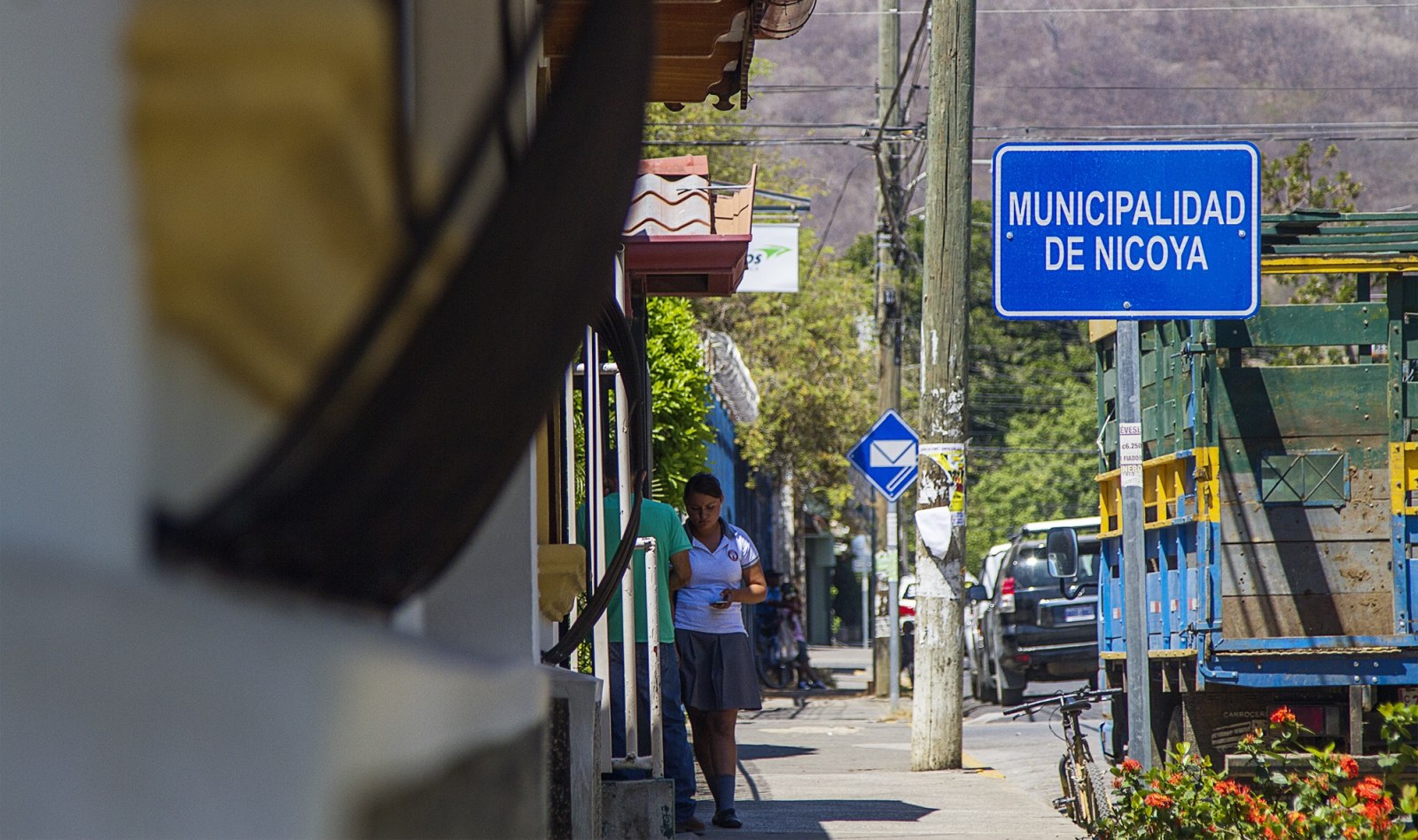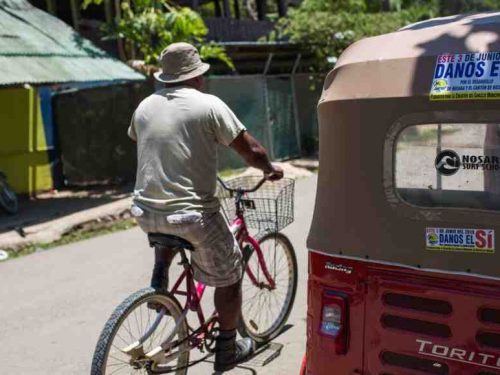
The uncertainty in Nosara has not ended. In November, The Voice of Guanacaste received documents from Attorney Javier Chaverri that show that both the municipal land registry department and the department of works and services rejected endorsement and construction permits respectively for two properties with administrative warnings (see attachments).
Since both the National Registry as well as lawyers who are experts in the matter previously stated to this newspaper that an administrative warning “does not freeze property transactions” but rather is designed to “inform third parties that there is an internal administrative process with the purpose of determining whether or not registry abnormalities exist.” The Voice of Guanacaste interviewed Humberto Leon Abadia, lawyer and legal adviser for the Municipality of Nicoya, for in-depth insight into the municipality’s basis for making this decision. (Audio of full interview in Spanish at the end of the article)
In the interview, Leon Abadia explained that, in the view of the municipality, an administrative warning acts as a “precautionary measure.”
The precautionary measure is a ruling by a judge that limits an action in order to avoid possible damage to third parties.
That is the reason the municipality uses to not issue permits for properties with administrative warnings because, as Leon Abadia responded, the National Registry found registry irregularities that could be settled by a judge in the future, ruling that the owner is a different person from the one who requested the permit, and therefore, if the municipality gives permits, it would affect third parties.
We should mention that, in the case of an administrative warning, the order comes from the Land Registry office and not from a judge.
Also, Leon Abadia clarified that the municipality will analyze properties with administrative warnings on a case by case basis when it comes to approving or rejecting permit applications.
Why did the municipality make the decision to not give building permits?
The administrative warnings are generated by the land registry office and the national registry. We do not have the competency, the ability, to say something other than what the land registry says. That would be an abuse of authority. We have to abide by [the administrative warning orders] until there is a sentence that says otherwise and that clears up the situation that has been determined by the land registry to determine this administrative warning, to generate this order and this administrative warning condition.
Does the order to not give permits come from the department of works or directly from the mayor?
From the mayor I don’t know. What I do know is that the legal block is to be fulfilled. It is a responsibility that we officials have… that, in effect, every administration that takes office (in the municipality) thoroughly complies with what the legal principle says. For this, there are requirements to be met, and in the case of administrative warnings, this comes from inconsistencies detected by the national land registry.
In May, the mayor said that he was not going to give more permits, in November he said that he was going to give permits, but now they are not giving permits…
I do not know the position of Mr. Marcos [Jimenez]. As advisors, we very much adhere to the principle of legality. In other words, we are not going to tell the head of the municipality “do this” if there is no basis that supports it as such. In the case of the department of engineering and construction control, they are technicians skilled in the subject and they handle the legal block because they have to settle it; they have to issue acts of approval and have to have a basis when they do not approve (permits).
So you guys say that you use what the National Registry says as a basis?
Of course! This is our foundation, and it is the doctrine of the legal basis that gives us legs to say “look… you can’t (build).” There is a situation where the Land Registry office has indicated that technically an abnormality exists that can affect the rights of third parties, so imagine that the muni approves [something] on land with an administrative warning and then it turns out that it affected the rights of a third party. It is a huge responsibility … that would generate all kinds of consequences, right? Judicial and administrative, criminal, civil…
We intend to not only safeguard our responsibility as officials [but also] to not affect the rights of third parties. Until the Land Registry office says otherwise, well, we have to abide by what they say.
Are the permit denials just for the 85 properties that Guanacaste Custody Properties (Propiedades de Custodias Guanacastecas) claims as theirs, or are they also for the other 586 properties that also have administrative warnings but that are not claimed by others?
I have always said that each case is a specific universe…. Here, each case that comes in is analyzed. To ponder the number of properties that you are talking about, I would not venture to say. It is irresponsible to generalize and give generic criteria about this.
Is this criteria being applied only in Nosara or in all of the canton?
Wherever the registry indicates to us that such a condition exists. It’s not that the matter has been misinterpreted, that the [municipal] administration intends to suppress only one type of license for that district, no, no. As long as this legal situation exists, it will be applied wherever it is designated geographically. It is not a whim of the administration.
This situation exists throughout the country. However, not all municipalities take administrative warnings as preventive measures. Why do you guys do it?
Because we are guaranteeing the right of legal principle. If the rest of the local governments decide to take the risk and expose themselves to facing situations with some legal consequence, then that is their criteria.
If there is no final judgment from a judge that there are indeed irregularities in the lots in question, why doesn’t the municipality consider issuing permits with an option for the applicant to do so at their own expense and risk?
Because if it is a precautionary measure, it brings protection with it and in turn, prevents the violation of a right. In this case, we avoid violating the rights of third parties because there are a technical topographical situation that is not cleared up and until it is clarified, we as an administration cannot risk violating the rights of third parties by violating the legal principle.
Don’t you think that this affects the property market in Nosara?
Now that’s another situation. In my case, I am a lawyer. In the case of the construction control (department), they are technicians skilled in this subject. Now as for the economic situation…. that is not our area of expertise. So far, we have to abide by what the Land Registry office says, and if part of the flow of economic development is affected, as you say, unfortunately until this situation is clarified, the municipality cannot violate what is there. That would be a question for the land registry office.






Comments